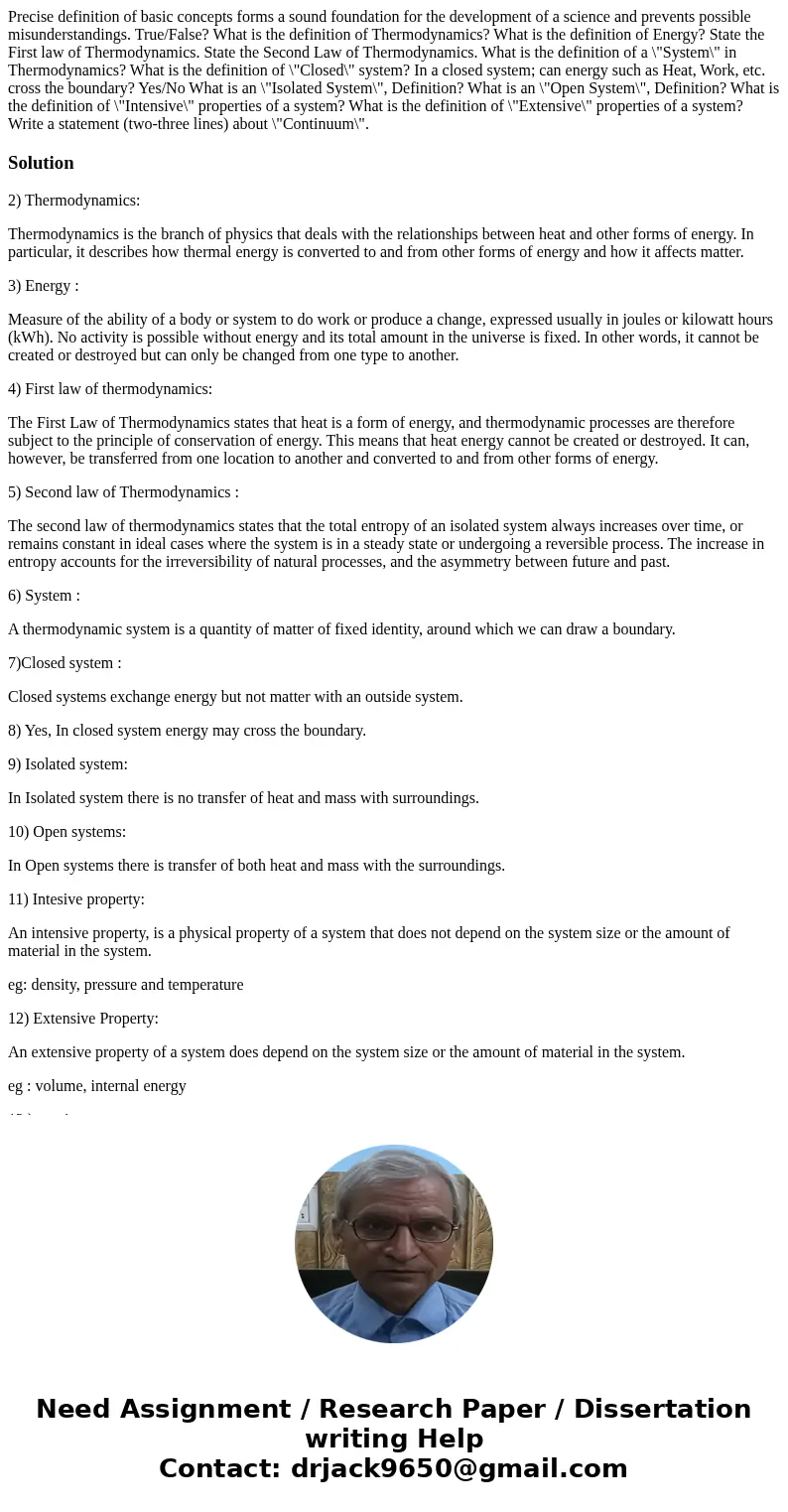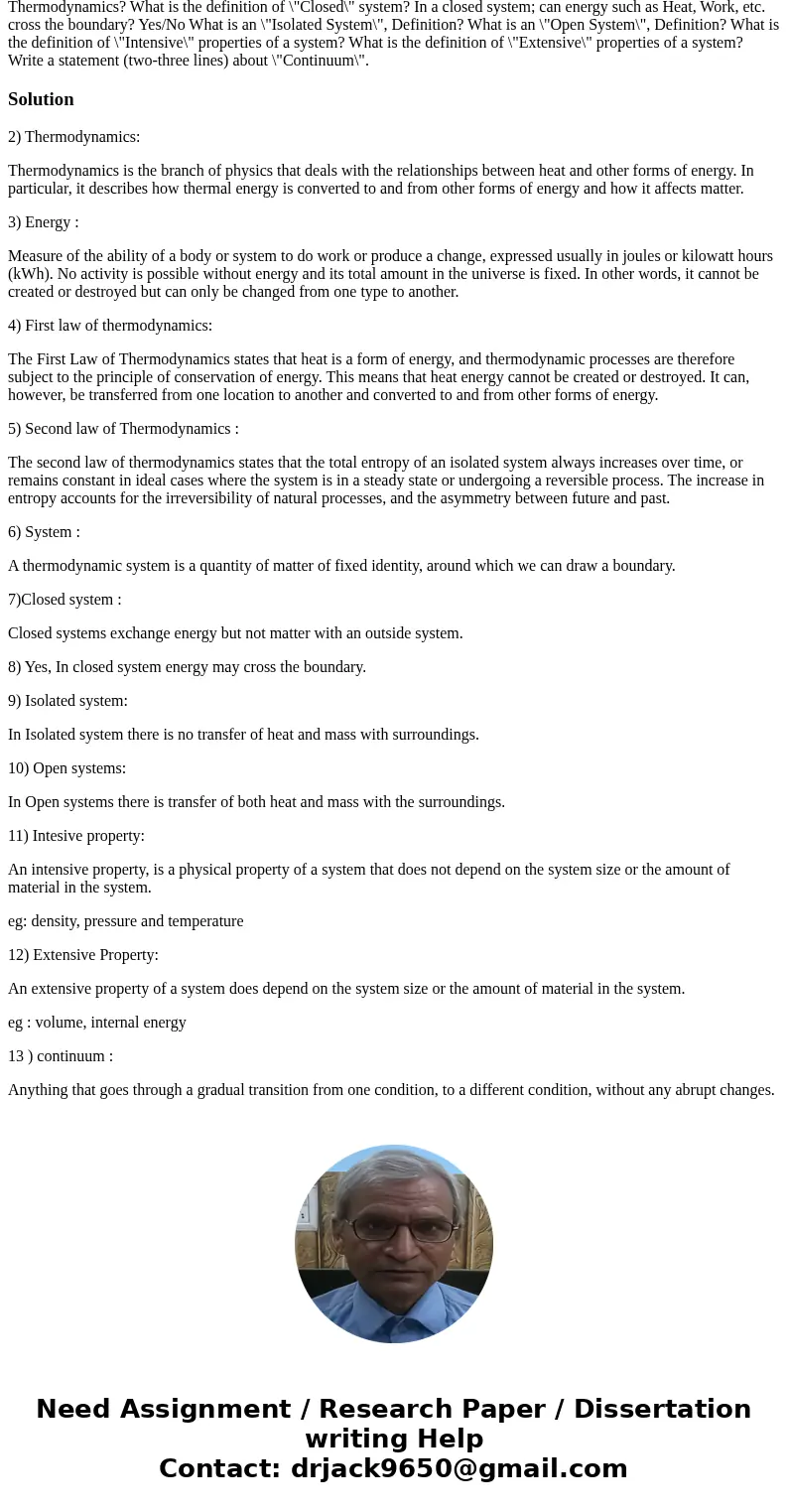Precise definition of basic concepts forms a sound foundatio
Solution
2) Thermodynamics:
Thermodynamics is the branch of physics that deals with the relationships between heat and other forms of energy. In particular, it describes how thermal energy is converted to and from other forms of energy and how it affects matter.
3) Energy :
Measure of the ability of a body or system to do work or produce a change, expressed usually in joules or kilowatt hours (kWh). No activity is possible without energy and its total amount in the universe is fixed. In other words, it cannot be created or destroyed but can only be changed from one type to another.
4) First law of thermodynamics:
The First Law of Thermodynamics states that heat is a form of energy, and thermodynamic processes are therefore subject to the principle of conservation of energy. This means that heat energy cannot be created or destroyed. It can, however, be transferred from one location to another and converted to and from other forms of energy.
5) Second law of Thermodynamics :
The second law of thermodynamics states that the total entropy of an isolated system always increases over time, or remains constant in ideal cases where the system is in a steady state or undergoing a reversible process. The increase in entropy accounts for the irreversibility of natural processes, and the asymmetry between future and past.
6) System :
A thermodynamic system is a quantity of matter of fixed identity, around which we can draw a boundary.
7)Closed system :
Closed systems exchange energy but not matter with an outside system.
8) Yes, In closed system energy may cross the boundary.
9) Isolated system:
In Isolated system there is no transfer of heat and mass with surroundings.
10) Open systems:
In Open systems there is transfer of both heat and mass with the surroundings.
11) Intesive property:
An intensive property, is a physical property of a system that does not depend on the system size or the amount of material in the system.
eg: density, pressure and temperature
12) Extensive Property:
An extensive property of a system does depend on the system size or the amount of material in the system.
eg : volume, internal energy
13 ) continuum :
Anything that goes through a gradual transition from one condition, to a different condition, without any abrupt changes.


 Homework Sourse
Homework Sourse